|
Thor finally took a day off. Mind you, not a full 24 hours. But from sunup to sundown on Friday we had no storms. No rain. We even had some moments of sun. It was a welcome respite after days of threatening weather. But later that night, the heavy rain returned and we’ve bounced in and out of splotchy sunshine and rowdy storms ever since. I’ll spare you another screed about climate change. What’s the point? We’ve all heard about continuing flooding across the Midwest, the South, and even the Northeast. Homes and businesses damaged, lives lost. Let’s just get used to it, shall we? Now that summer is here, the forecast indicates we may finally move into a drier pattern, at least temporarily. The Mississippi River is below flood level in some areas. Sunshine is predicted here in Kentucky this week. There may be opportunities to get out and enjoy the seasonal wildflowers as they once again stand tall among the impudent mushrooms. Unlike Thor, I’ve managed to take more than a day of rest this month. I’ve backed off the writing and editing to relax those literary muscles before the next phase. Perhaps in July I’ll hunker down again and reacquaint myself with a more disciplined daily routine. But it has been nice to look up from the task at hand and engage with the world beyond my computer screen. And I’m glad Mother Nature granted me one day to paddle around the lake and visit some of my amphibious neighbors. If Sol does indeed manage to disarm Thor for a few days, I’ll wipe off the mildew and head back outside to pay homage to brighter days ahead.
0 Comments
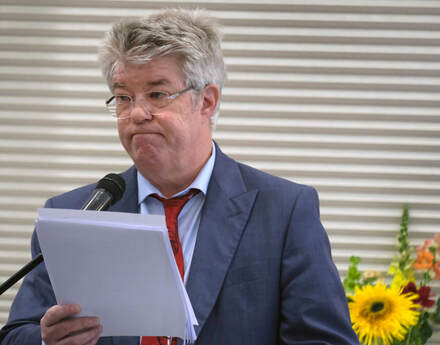 Chris Offutt, author of screenplays, memoirs, and several short stories and novels set in Kentucky, speaks at the 2019 Books in Progress Conference. Photo by Tom Eblen of the Carnegie Center. Chris Offutt, author of screenplays, memoirs, and several short stories and novels set in Kentucky, speaks at the 2019 Books in Progress Conference. Photo by Tom Eblen of the Carnegie Center. This part isn’t supposed to be fun. But, for some reason, it is. Perhaps it’s only because I’m on the front end of the process, and it’s still fresh and new. The rejections haven’t started rolling in yet, overwhelming my inbox. At this stage, at least, I’m finding it fascinating to research literary agents and small independent presses, trying to discover that perfect fit for my novel. The whole publishing industry seems like a giant corn maze: I just need to take my time, peer around each corner, decide whether to go this direction, or maybe that direction. I expect I’ll find something interesting—even if not useful—either way I go. It’s an extraordinarily complex business, or so it seems to the uninitiated. There are so many layers, so many ways you could get tripped up. In fact, it may be because the odds seem so long that it feels more like a game than anything of serious import. It’s like playing Monopoly or Risk, where you can go all in without suffering any real consequences. I’m some anonymous sad sack submitting my first-born to a sophisticated, highly literate, beautiful person in New York or Chicago. What can I possibly expect? They say that the writer-agent relationship is like a marriage. You look for someone you trust, someone you like, someone who shares your taste, someone who has your best interests at heart, someone who will stay with you for the long haul. That seems much more interesting than looking for a business manager. And it shifts the emphasis away from that piece of writing—which can make you morbidly insecure—to the human being who is going to share this journey with you, who will take your hand and guide you through the impenetrable process. Recently, at the 2019 Books in Progress Conference at the Carnegie Center in Lexington, Ky., I was buoyed by award-winning author Chris Offutt’s approach to this phase of writing. When he was a young man, a graduate of the esteemed Iowa Writers’ Workshop—someone with talent and credentials and well-known mentors—he struggled to submit his stories to literary journals. His peers prodded him, but he just didn’t think he could face the ego-busting rejections. To flip the script, so to speak, he decided to set a goal for himself: 100 rejections in one year. He was ecstatic as each one arrived in his mailbox. He kept a careful tally. The rejections stacked up. Then one day, the mailman delivered something unexpected: an acceptance letter from the Coe Review. He was crestfallen. Having amassed 86 rejections, he had just missed the goal he had set for himself. At the same conference, I attended a panel discussion that included a successful young writer and her equally young agent. (I’ve heard the average age of agents is 27, a real obstacle for a woman of a certain age who has written about a middle-aged couple who lived nearly 100 years ago.} The writer revealed that she had searched for an agent for eight years. She kept writing, undeterred, and she kept looking for someone to give her a chance. She and her agent have now enjoyed a 10-year career together. It was clear they have a supportive, mutually beneficial relationship. They poked mild fun at each other and finished each other’s sentences, just like an old married couple. I can promise you I won’t be that dogged. I’m highly suspect that my lifespan will even extend another eight years, let alone my determination to publish a novel. I’ll be swept away by some other shiny object long before then. Another project. Another hobby. Another way to test my mettle. But, for the next few months, I’ll do the necessary research. I expect I’ll send scores of query letters and receive an equal number of rejections. I’ll keep Chris Offut’s approach in mind, just to maintain my equanimity. And if something positive happens, I’ll remind myself that finding an interested agent is just the initial step. Then you typically endure another grueling editing process. Then agonize as your book is submitted to publishing houses for new editors to scrutinize. And if you’re really, really lucky, then you get to go through lengthy contractual negotiations and watch helplessly as the publisher’s creative team comes up with a new title and a book cover you’re not sure about. Then it’s time to pore over that final proof, looking for any remaining errors or typos while you secretly fret that the book is no good after all. Yeah, I’d better grab my fun while I can. 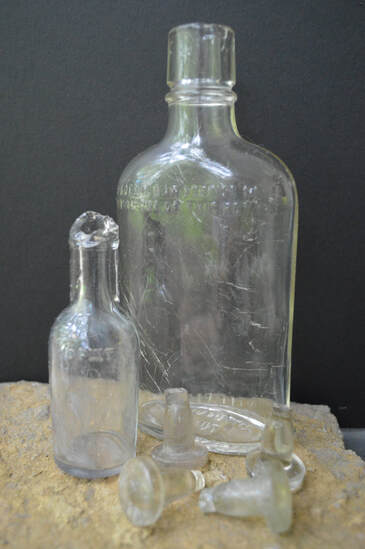 Bottles found at the site of the historic Bond & Lillard Distillery in Anderson County. Bottle stoppers, from an old distillery site in Harrison County, provided by Ray McIntyre. Photo by Rick Showalter. Bottles found at the site of the historic Bond & Lillard Distillery in Anderson County. Bottle stoppers, from an old distillery site in Harrison County, provided by Ray McIntyre. Photo by Rick Showalter. Some people use a metal detector to find hidden treasure from the past. In fact, Rick and I talked to one such fellow the other day as we were loading our bikes in the car after a short ride through the Bluegrass countryside. Rick, never shy about approaching a stranger, asked the young man, Rob Mattingly, if he had found anything of interest there on the grounds of Great Crossing Park in Scott County. That launched a far-reaching conversation that revealed, among other things, Mattingly’s startling grasp of regional and family history as well as his specific knowledge of glass bottles from 1870 to 1910. He had even done some searches on property in the Gilberts Creek area of Anderson and Mercer Counties. After hearing a brief summary of how his early family settled in Marion, Washington, and Nelson counties, we decided if he wasn’t related to the Goodletts he may well be related to the McClures—Charleen Goodlett’s family. 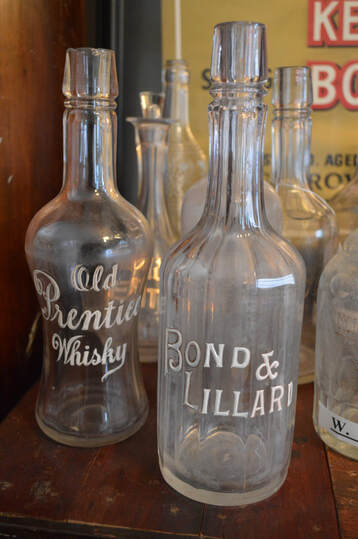 Whiskey bottles from Brent Hawkins' collection. Photo by Rick Showalter. Whiskey bottles from Brent Hawkins' collection. Photo by Rick Showalter. A couple of weeks before that excursion, Rick and I had joined cousins Sandy Goodlett and Ben Birdwhistell as we examined the amazing collection of a native Lawrenceburg resident, Brent Hawkins. Brent’s treasure trove of historical photos, maps, documents, whiskey bottles, and furniture—all related to Lawrenceburg and Anderson County—nearly knocked us off our feet. Most of his artifacts had been collected the old-fashioned way: by talking to area residents, expressing an interest in their family histories, and attending estate sales. Once we were able to focus our over-stimulated senses, we concentrated on the old steamer trunk full of memorabilia that once belonged to our great-grandfather, Bro. W. D. Moore. Watch for more about those findings in an upcoming blog. Nearly a year ago, Murky Press’ resident archaeologist, David Hoefer, using one of the tools of all contemporary scientists and historians—the online search—stumbled across another family relic: my father’s paper titled “Kentucky Bourbon Whiskey.” Written in 1948, that term paper—identified as a “book”—is now preserved at the Harvard Botany Libraries. We know not why or how it found its home there. It’s more of a history of bourbon distilling in the U.S. than it is an examination of the plants used in the distilling process. But, in light of the purpose of the university’s Economic Botany Library, it does make sense: “The Economic Botany Library…specializes in materials related to economic botany or the commercial exploitation of plants. Subject areas cover ethnobotany, medicinal plants, hallucinogens and narcotics, crop plants, edible and poisonous plants, herbals and other rare pre-Linnean works….” Since all of the materials in the botany libraries are non-circulating, we were struggling to get our hands on a copy. That’s when Brad Wilson, Bobby Cole’s son-in-law, stepped in to complete the excavation. A modern intrepid explorer, Brad, who happened to be in Boston for a family matter, crossed the Charles River to visit the Harvard campus in Cambridge and found his way to the proper library. There, with the kind assistance of the library staff, he dug out the infamous paper written by the war-weary, homesick graduate student. I want to thank Brad for his role in unearthing this piece of family history. And, since I’m writing on D-Day, I want to recognize Bobby Cole and John Allen Moore and Rinky Routt and George McWilliams and Lin Morgan Mountjoy and John D. Goodlette and Vincent Goodlett and Billy Goodlett and John Campbell “Pud” Goodlett and all the other boys of The Last Resort who helped deliver Europe and the Pacific region from tyranny. With a nod to my father’s four rules for field work*, history is where you find it. It’s personal. It’s regional. And it has implications for the entire world—for all of us. If we don’t honor it, recognize it, study it, and willingly take a few lessons from it, we will not endure. On this day we honor the remaining veterans of World War II. We honor those who gave their lives on the shores of Normandy and all across the globe during that conflict. And we hope that our country’s leaders will once again consider the lessons that history can teach us. Perhaps they can learn a thing or two from Rob Mattingly and Brent Hawkins, two average citizens in a red state who have invested hours and hours of their lives getting familiar with the past. *Abbreviated version of Professor John C. Goodlett’s Four Rules of Field Work: 1. Water, generally, runs downhill. 2. Plants occur where you find them. 3. Never get separated from your lunch. 4. Never go back the same way you came. For more about the Bond & Lillard Distillery, read Family Spirits. For more about the discovery of my father's paper on bourbon, and his affection for the spirit, read Bonded to Kentucky. 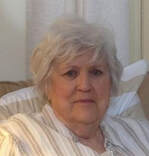 In memory of Brad Wilson’s mother, Dixie (1937-2019), who raised one heckuva son. |
Details
Archives
June 2023
Categories
All
|

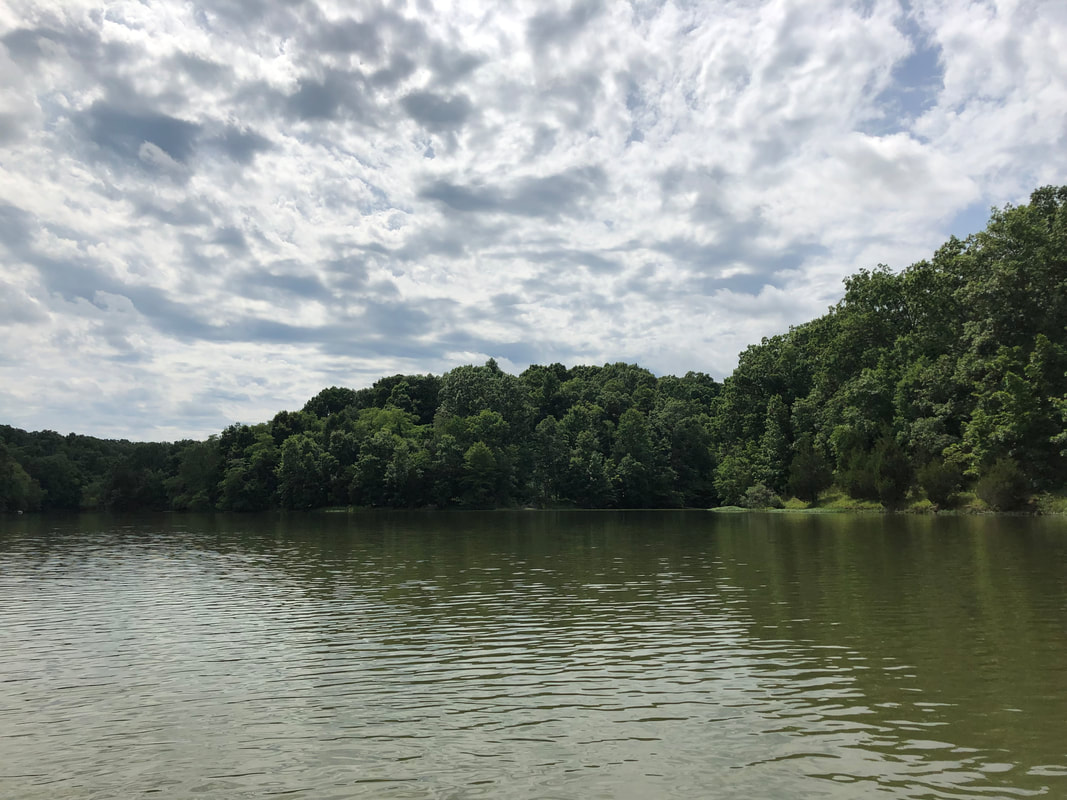
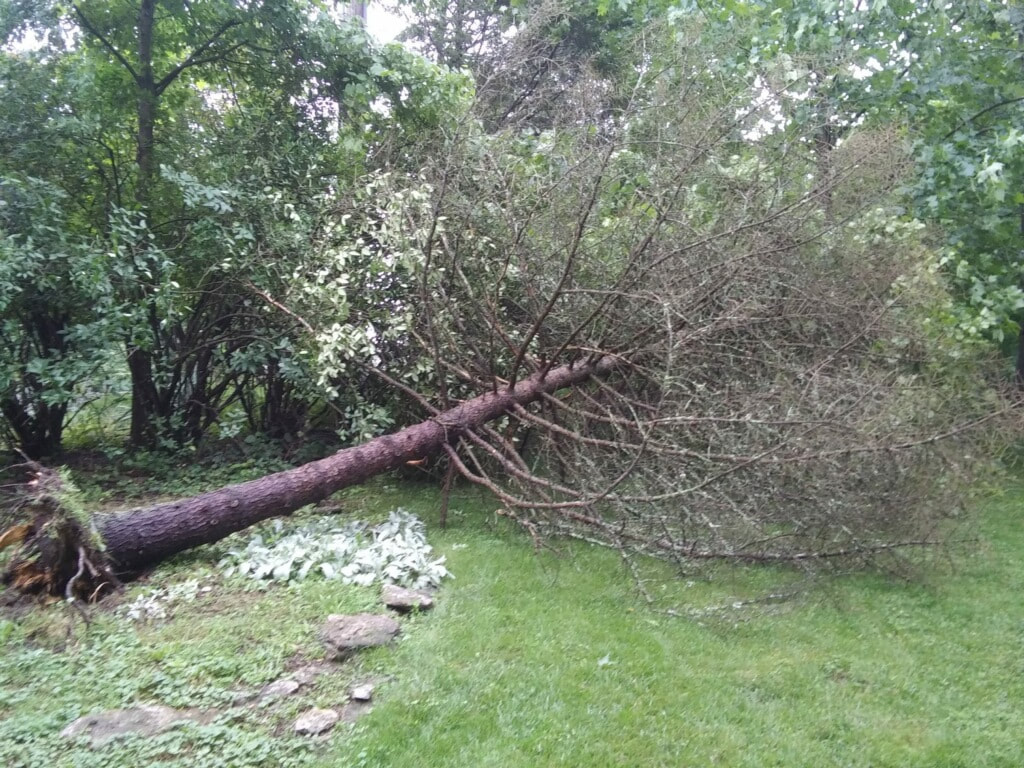
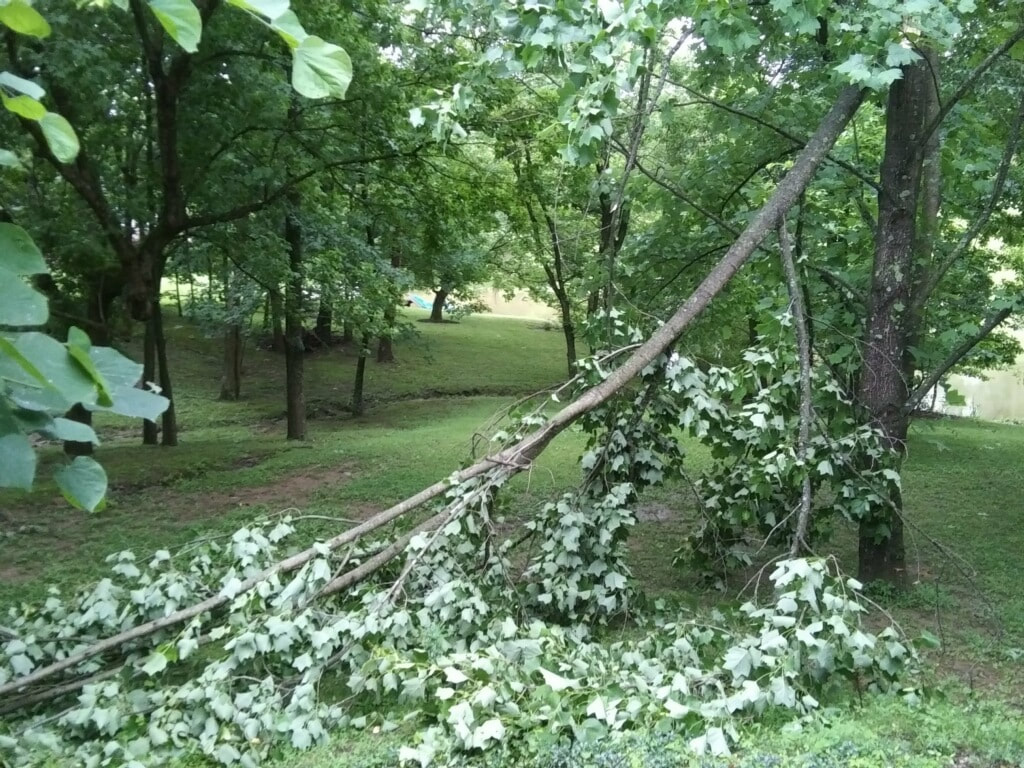
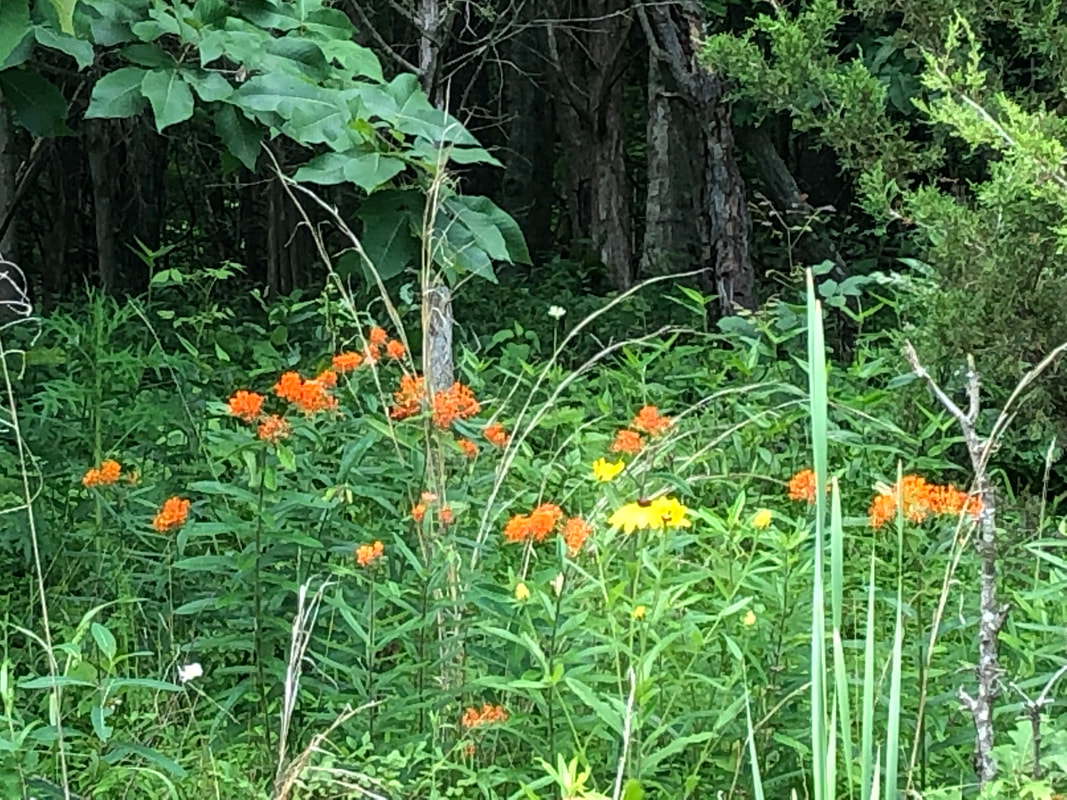
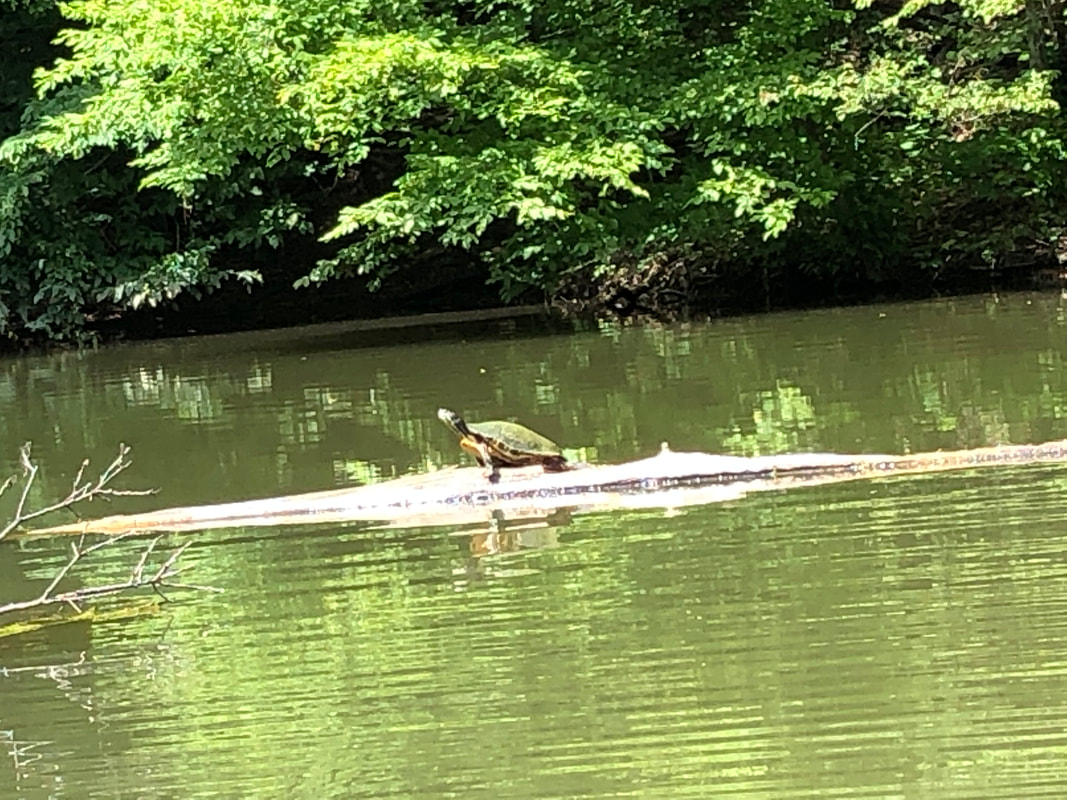
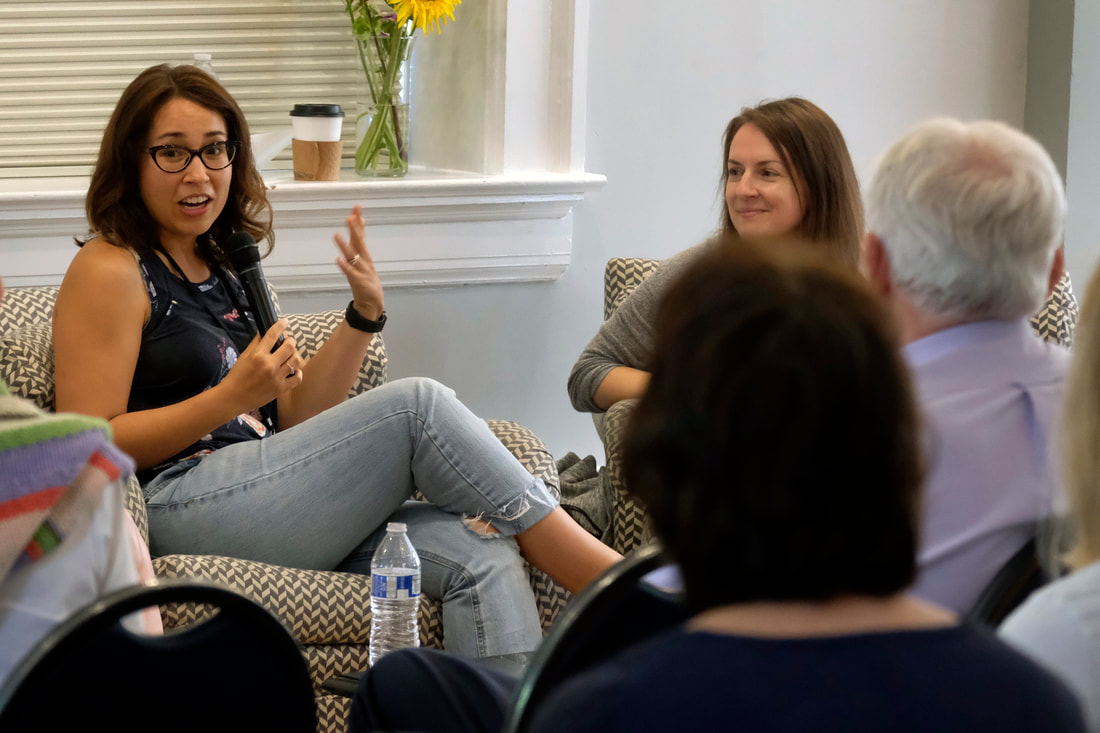
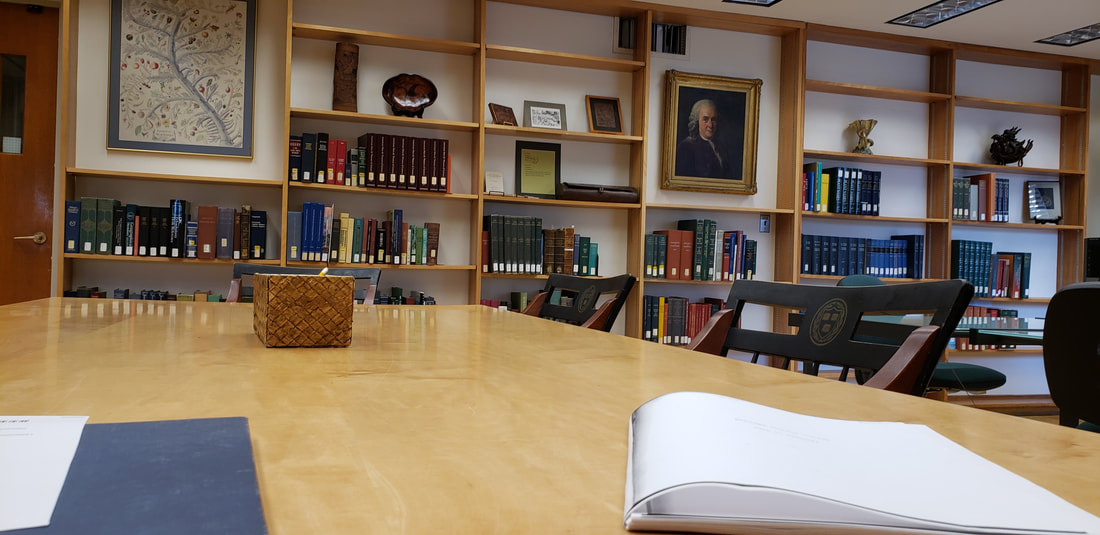
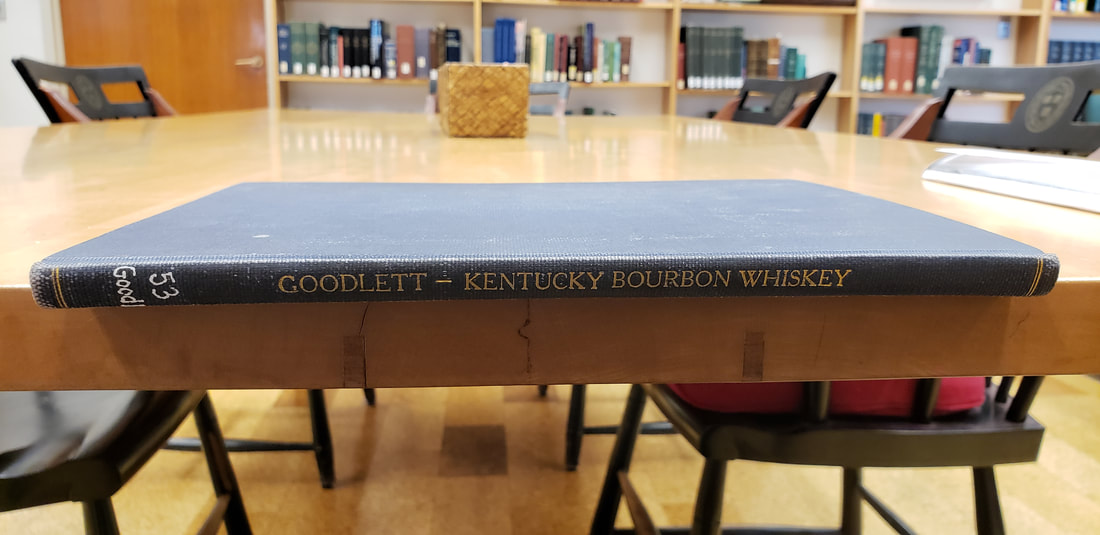

 RSS Feed
RSS Feed